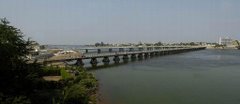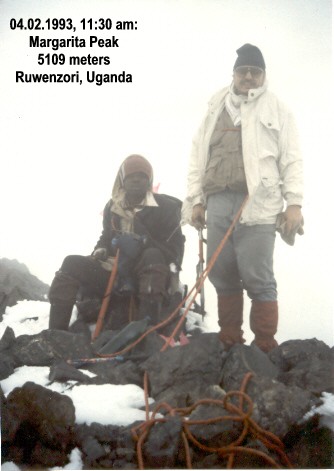Oil: Can Ghana escape the “Resource Curse"?
Feature Article on gahanweb.com:
Leaving a legacy of Transparency in Ghana’s Oil and Gas Industry
Extracts:
" (...) It is an undisputable fact that in the circles of oil and gas exploration, there is little evidence that past oil exports and petrodollars have made enormous contribution to the welfare of developing countries. In Nigeria, 40 years of petroleum exports (about $340 billion earned) have not helped raise standards of living but rather exacerbated conflicts; Gabon, sub-Saharan Africa’s fourth biggest oil producer and the world’s third biggest provider of manganese still has an estimated population of 1.5 million living below the poverty line. Chad is no exception in this regard.Obviously, this means that Ghana needs to proactively consider certain basic issues because the logic behind these calamities in other resource-rich countries is easy to understand. The country should not be obsessed with the notion of ‘fairly distributing oil revenues to all Ghanaians’ when the framework to ensure the equitable oil revenue distribution does not exist. It is interesting to know that the major issues behind the failures of resource-rich developing countries all boil down to “corruption”. If corruption is the yardstick to be used to assess the severity of “Resource Curse”, then definitely Ghana is not so exceptional to elude the grips of the “Devil’s Excrement”. It is against the backdrop of the upsurge of corruption in resource-rich countries especially in the developing world, that the Extractive Industries Transparency Initiative (EITI) was launched in September 2002 to encourage oil and gas companies to publish the payments they make to the governments of countries in which they operate.This article, therefore, seeks to draw the attention of Ghanaians, civil society groups and the Government to the spell of “corruption” that has beclouded the benefits of oil and gas explorations by drawing lessons from other African countries, our close allies. Again, to devise measures that can be put in place to nip this canker in the bud. So, the sixty-four thousand dollar question still remains ‘can Ghana leave a legacy of transparency for petrodollars to be an economic salvation?’"
>> more



